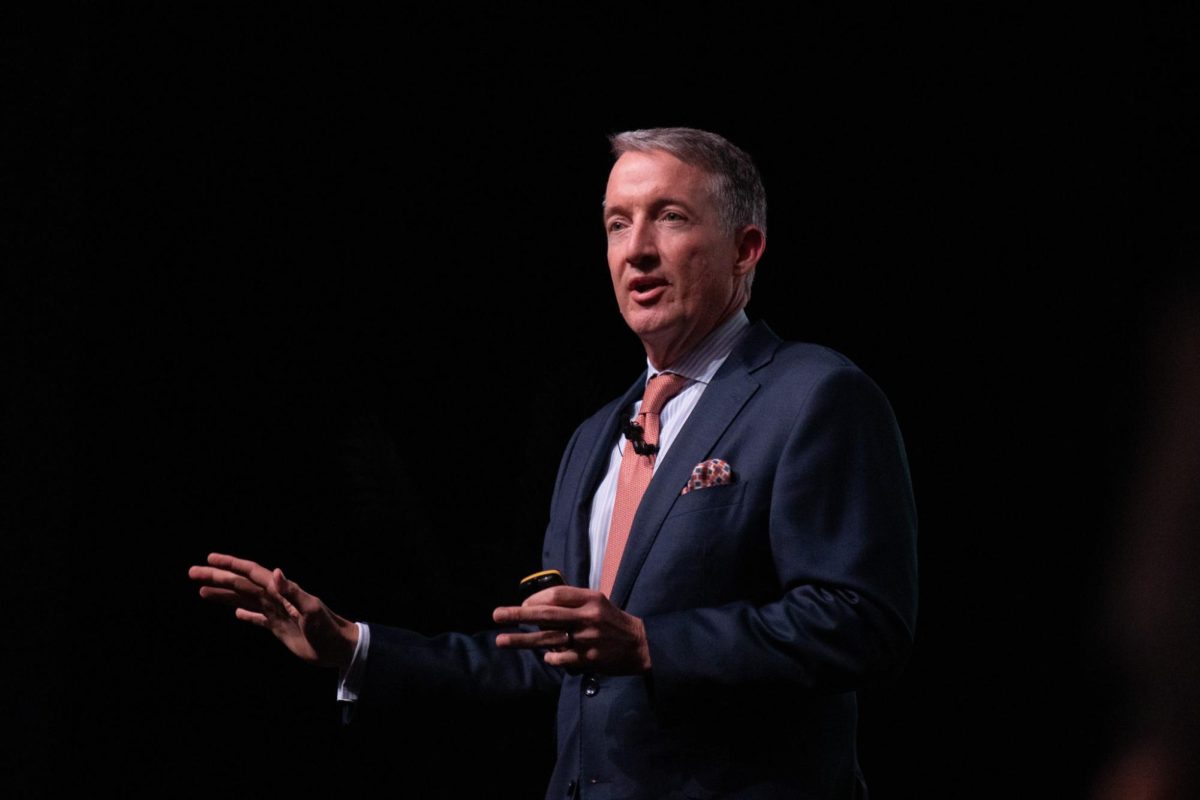The University’s three “core themes” include enabling student success, growing depth and broadening the University’s resources and recruiting “lead-talent” faculty and students, President Jay Hartzell said in the annual State of the University address on Sept. 18.
Hartzell did not mention last semester’s protests or actions to comply with Senate Bill 17 which paused new diversity, equity and inclusion policies and practices.
Hartzell spoke first about the increasing demand to be in the student body of UT, with 73,000 applications submitted for the class of 2028. He said the increase in interest caused the change in automatic admittance from the top 6% to the top 5% of high school students, which Hartzell recently announced at a Sept. 16 faculty council meeting.
“More and more of those very top students want to be here and that’s a great problem to face,” Hartzell said in the address. “But it’s part of the story of our student body and the interest that they take and want to be here.”
Hartzell said student success and graduation rates have improved, with the last group of graduates reaching a 74.5% graduation rate. Hartzell said he would like to invest more in students to better prepare themselves for after graduation.
“We think by five years from now, we can have 90% of our students know they have that first plan out,” Hartzell said. “Maybe it’s a job, maybe it’s graduate school, maybe it’s starting a company.”
Hartzell said the University is continuing to construct more housing around campus for students, including a new graduate student housing complex and construction for a new undergraduate dormitory replacing Whitis Court.
“We all know that being proximate to our campus matters,” Hartzell said. “Students who live closer to campus have better experiences (and) they’re more likely to get engaged.”
When speaking about depth in the University, Hartzell announced a new initiative focused on finding entrepreneurship opportunities for students who wish to pursue a career as an entrepreneur while also ensuring the University stays a well-funded and top research institution.
“One of the great things about a broad, diverse decentralized campus is innovation happens,” Hartzell said.
Hartzell spoke about the Discovery to Impact initiative which began investing in early-stage companies from faculty.
“How can we help (faculty), propel them and get their ideas farther along?” Hartzell said. “It really is about showing that we care, showing that we’re going to invest alongside other investors to help propel these ideas forward.”
UT’s Year of AI “really helped” put a spotlight on the research initiatives and programs of the University, Hartzell said. He also announced the new master of science degree in AI, introduced in February, has reached 1,300 students in the program and a new AI institute called CosmosAI.
Hartzell announced 2025 will be the University’s “Year of Energy.”
“I think of us as the energy University and I’m not sure the rest of the world always gets that,” Hartzell said. “How can we as a University combine the strengths we have around energy and environment and come forward with something that people understand?”
Hartzell ended his speech talking about the need to continue to recruit high-level faculty and staff but also seeking high quality students. Hartzell said 800 students in the current freshman class were valedictorians or salutatorians.
“We’ve got to figure out more ways to (recruit talent),” Hartzell said. “That’s going to take resources.”














